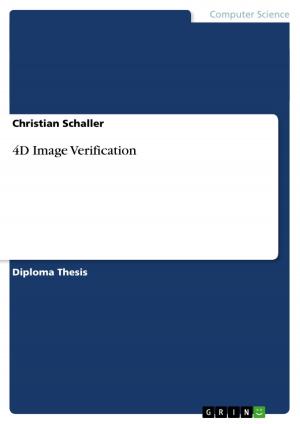A critical appraisal of global innovation management literature: Is there really a 'trend towards a global innovation network'?
Business & Finance, Management & Leadership, Management| Author: | Marcus Matthias Keupp | ISBN: | 9783638348218 |
| Publisher: | GRIN Publishing | Publication: | February 9, 2005 |
| Imprint: | GRIN Publishing | Language: | English |
| Author: | Marcus Matthias Keupp |
| ISBN: | 9783638348218 |
| Publisher: | GRIN Publishing |
| Publication: | February 9, 2005 |
| Imprint: | GRIN Publishing |
| Language: | English |
Seminar paper from the year 2005 in the subject Business economics - Business Management, Corporate Governance, grade: sehr gut, University of St. Gallen, course: Doktoranden- (PhD) Seminar, 84 entries in the bibliography, language: English, abstract: Most literature on international R&D has employed a static and MNC-centered view, assuming some kind of evolutionary process by which R&D activities are internationalized, typically with some labs adapting products to local markets first, and whole research facilities being implemented on a world-wide basis last to finally profit from a 'global innovation network'. This article challenges such a view, asking for a thorough and critical investigation. It will be shown that there are many counter-examples questioning the traditional view of evolutionary development and 'optimal' organization that hovers around the 'centralisation - decentralisation' dichotomy. Instead, a look on several contingency effects and empirical phenomena is proposed to gain interesting insights as to the limitations of many traditional models. The case of China's economic emergence provides a final illustration for these arguments. The conclusion shows how theoretical concepts known from other disciplines may serve as an analytical framework that can take into account more aptly the developments alluded.
Seminar paper from the year 2005 in the subject Business economics - Business Management, Corporate Governance, grade: sehr gut, University of St. Gallen, course: Doktoranden- (PhD) Seminar, 84 entries in the bibliography, language: English, abstract: Most literature on international R&D has employed a static and MNC-centered view, assuming some kind of evolutionary process by which R&D activities are internationalized, typically with some labs adapting products to local markets first, and whole research facilities being implemented on a world-wide basis last to finally profit from a 'global innovation network'. This article challenges such a view, asking for a thorough and critical investigation. It will be shown that there are many counter-examples questioning the traditional view of evolutionary development and 'optimal' organization that hovers around the 'centralisation - decentralisation' dichotomy. Instead, a look on several contingency effects and empirical phenomena is proposed to gain interesting insights as to the limitations of many traditional models. The case of China's economic emergence provides a final illustration for these arguments. The conclusion shows how theoretical concepts known from other disciplines may serve as an analytical framework that can take into account more aptly the developments alluded.















